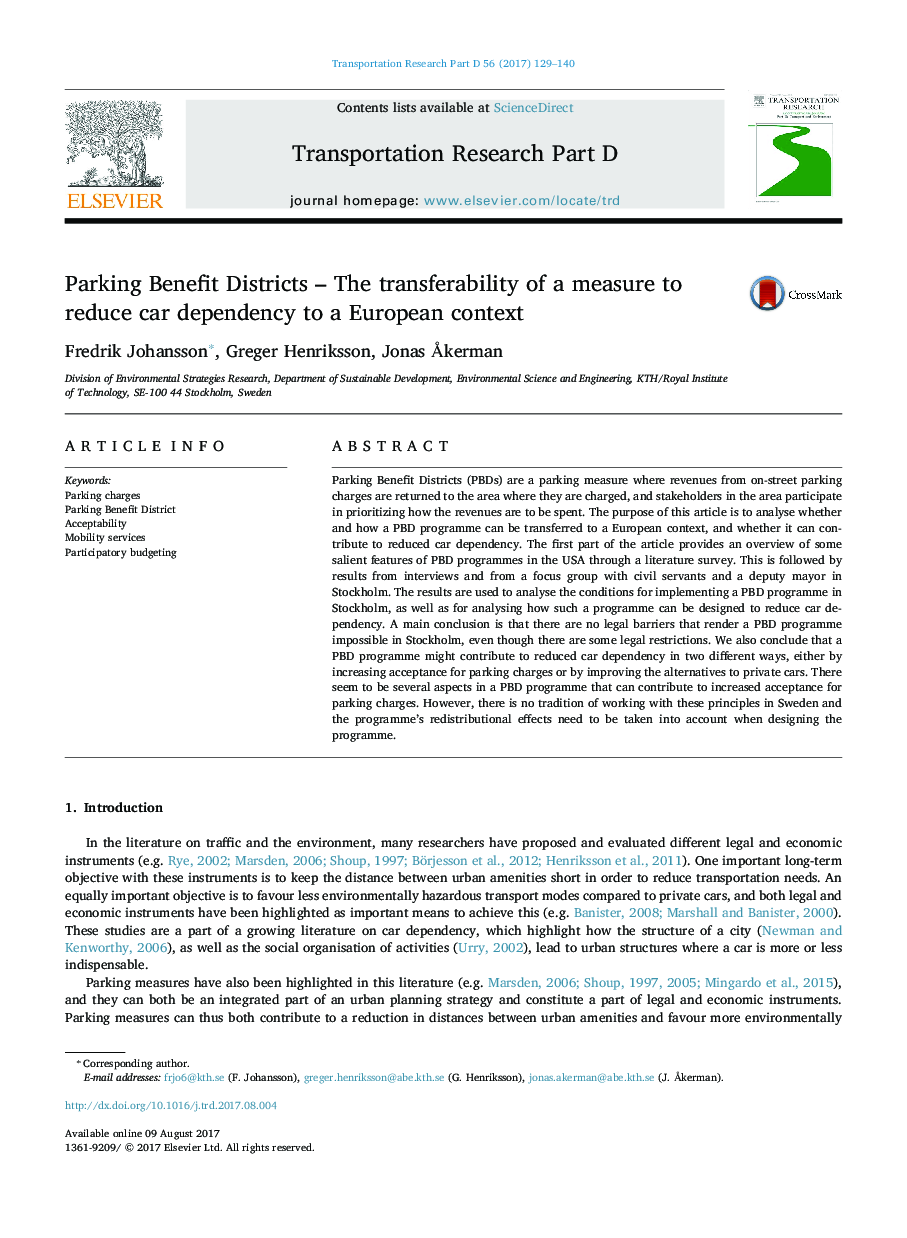| Article ID | Journal | Published Year | Pages | File Type |
|---|---|---|---|---|
| 5119337 | Transportation Research Part D: Transport and Environment | 2017 | 12 Pages |
â¢A PBD programme may increase acceptance for parking charges.â¢Earmarking revenues for sustainable mobility may reduce car dependency.â¢Possible to implement within existing legislation with some restrictions.
Parking Benefit Districts (PBDs) are a parking measure where revenues from on-street parking charges are returned to the area where they are charged, and stakeholders in the area participate in prioritizing how the revenues are to be spent. The purpose of this article is to analyse whether and how a PBD programme can be transferred to a European context, and whether it can contribute to reduced car dependency. The first part of the article provides an overview of some salient features of PBD programmes in the USA through a literature survey. This is followed by results from interviews and from a focus group with civil servants and a deputy mayor in Stockholm. The results are used to analyse the conditions for implementing a PBD programme in Stockholm, as well as for analysing how such a programme can be designed to reduce car dependency. A main conclusion is that there are no legal barriers that render a PBD programme impossible in Stockholm, even though there are some legal restrictions. We also conclude that a PBD programme might contribute to reduced car dependency in two different ways, either by increasing acceptance for parking charges or by improving the alternatives to private cars. There seem to be several aspects in a PBD programme that can contribute to increased acceptance for parking charges. However, there is no tradition of working with these principles in Sweden and the programme's redistributional effects need to be taken into account when designing the programme.
